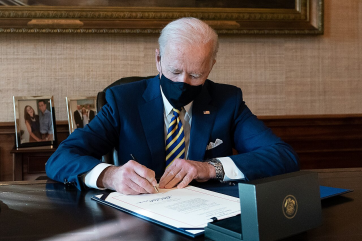Helen Mohsenzadeh Explains the Gaps in What Healthcare Students Are Learning in College
By David Thompson
Photo : Sincerely Media via Unsplash
Healthcare is an incredibly complex industry. From the needs of patients to the competing priorities of many healthcare organizations, there are many opportunities to learn.
Unfortunately, there are serious gaps in what healthcare administration and medical students are being taught to help them succeed in the workforce. Helen Mohsenzadeh, an administrator in the healthcare field from Topanga, California, explains where these gaps lie for administrators and physicians and how they could be remedied.
Gaps in Healthcare Administrators' Education
According to Helen Mohsenzadeh, there are several points where healthcare administrators could receive a better grounding in their field during college and postgraduate studies.
1. Focusing on Policy Over Innovation
Rather than teaching healthcare administrators to embrace new medical breakthroughs, training programs often spend too much time on healthcare policy and other issues that do not directly affect patient care. The medical industry wants to see more innovation at the organizational level and more respect for the constant march forward of technology.
2. Too Much Emphasis on Organizational Issues
It seems that healthcare administrators spend much of their time dealing with organizational issues like chains of command and delegating responsibilities. They cannot create positive and productive workplaces due to their myopic focus on organizational matters.
3. New Policies and Systems Need to Be Created
Healthcare administrators have a unique task when it comes to determining how medical care is accessed in today's society. Too often, these organizations are stuck in the past and are not ready to face today's challenges. Challenges related to access to healthcare are one of today's primary considerations.
4. Increasing Satisfaction With the Healthcare System
Many patients have serious grievances against the healthcare system. These patients should not be ignored. One of the reasons patients are disgruntled is the high cost of care. Administrators need to be taught how to control costs without sacrificing quality. By working more closely with physicians, they may reach this goal.
Medical School Issues
In addition to administrators, medical students are not being taught skills that could help them become more effective physicians in their own right:
1. Medical School Fails to Teach Professional Skills
While medical school generally gives doctors an excellent background in dealing with patient care, one gap exists in learning how to start and manage a practice and dealing with healthcare administration.
Medical students need to be taught how to handle insurance companies as well. There are limited sources of this type of information available in medical school, but doctors need a better grounding in this topic to run their practice successfully.
2. Medical Students Need to Know About Health Policy
While healthcare administration students may be spending too much time on policy issues, medical students do not cover it at all. Medical schools need to give their students and residents a way to understand healthcare policy since they will be dealing with the system's bureaucracy every day in their careers.
Healthcare economics and issues surrounding access to care should be emphasized in medical students' courses of study. In addition, government policies like the Affordable Care Act, Medicare, and Medicaid need to be studied to make informed decisions.
3. Too Much Emphasis on Rare Conditions Versus Common Problems
Medical conferences and innovation tend to cover rare conditions rather than spending time on problems like diabetes that affect growing population segments.
4. Physicians Poorly understand public Health
There is a large existing gap between public health and the practice of medicine. Public health professionals study apart from medical practitioners, leading to misunderstandings on both sides. Doctors are trained to see situations with patients one at a time, while public health professionals can take a population-level view.
There has been some progress in this area due to the prevalence of COVID-19 and the involvement of doctors in developing public health policies that benefit everyone.
Solutions for Medical and Professional Education
The healthcare system is often referred to as," and the disconnect between healthcare administrators and medical practitioners has become severe. Healthcare administrators and doctors need to be taught differently at the postgraduate level, helping the cause of bringing the entire industry together.
A deeper understanding of both sides will lead healthcare administrators and doctors to make better decisions and improve patient care while lowering costs for everyone. Working knowledge of administrative policies and procedures helps doctors deal with bureaucracy. Understanding how doctors make decisions about patient care will help administrators run their facilities with tremendous respect.
Helen Mohsenzadeh promotes the cause of bringing administrators and doctors together, letting each profession learn more about the other side of the healthcare system. This practice could bear fruit in greater cooperation among disparate parts of the healthcare system and improve public health.
* This is a contributed article and this content does not necessarily represent the views of universityherald.com









